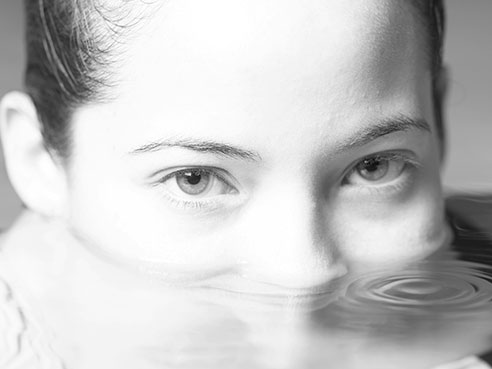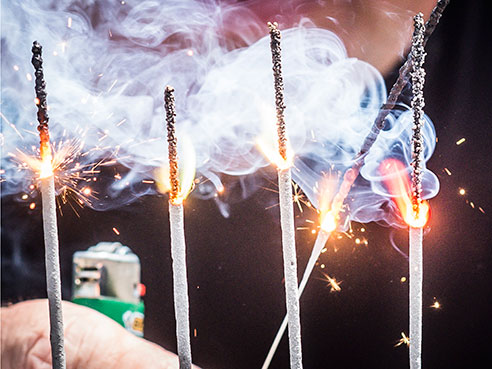 While the warm summer months are perfect for spending time outside, several environmental factors can spell trouble for eyesight. One University of Alabama at Birmingham optometrist says knowledge of what to do, and what not to do, will keep eyes healthy.
While the warm summer months are perfect for spending time outside, several environmental factors can spell trouble for eyesight. One University of Alabama at Birmingham optometrist says knowledge of what to do, and what not to do, will keep eyes healthy.
“Caring for our eyesight should be a priority year-round, but there are extra precautions that should be taken during the summertime,” said Adam Gordon, O.D., MPH, FAAO, clinical associate professor in the UAB School of Optometry.
Contact lenses
“A lot of people don’t really understand that contact lenses and any kind of water — swimming pool, ocean, river, lake, hot tub, even tap — are not compatible,” Gordon said. “The problem is that water harbors microorganisms, and contact lenses are like sponges that absorb whatever they’re surrounded in. The lenses absorb these microorganisms and other impurities, which increases the risk of corneal infections or keratitis.”
Gordon says research shows that a specific parasitic organism, called Acanthamoeba, is commonly found in all types of water. Acanthamoeba really thrives when a contact lens is worn and produces a very severe form of infection, called Acanthamoeba keratitis.
“Infections caused by this microorganism are low-frequency; but they’re so severe they can lead to multiple surgeries, blindness, pain and suffering,” Gordon said. “It’s not easily treatable, and there’s not a cure.”
Bottom line: It’s best to take contact lenses out before you swim, shower, bathe or lounge in a hot tub. Use prescription swim goggles and sunglasses to better enjoy the outdoors. If swimming with contact lenses is a must, take out the contacts and disinfect them immediately after or throw them away and use a fresh pair.
Sunshine
“Over a period of time, exposure to UV light from the sun can damage the eye,” Gordon said. “This damage is associated with cataracts and possibly macular degeneration later in life.”
One of the simplest things to do whenever one is outdoors, Gordon says, is to wear sunglasses. This is especially important for young children as well.
“The ocular lens inside a child’s eye is more transparent than the adult lens, so more UV light penetrates the eyes of children,” Gordon said. “Statistics show we receive over half of our lifetime UV exposure by the age of 18.”
Bottom line: The same principle of using sunscreen on the skin to protect from cancer-causing UV radiation goes for the eyes too. Gordon says sunglasses do not have to be expensive to provide UV protection — just make sure they block 100 percent of UVA and UVB radiation or have “broadband” UV protection.
Allergies
“If people have bad allergies that affect their eyes, rather than rubbing them, they need to treat the underlying reason,” Gordon said. “And if you wear contact lenses, sometimes you just have to take a break from wearing them during allergy season if the itching, tearing or irritation is severe.”

Bottom line: Over-the-counter or prescription eye drops for allergies are safe to use, but the cause of the symptoms should still be attended to. Contact lens wearers should not use allergy drops with contacts in.
Fireworks
“Fireworks injuries are an emergency,” said Jay McCollum, M.D., an ophthalmologist and director of emergency services at the UAB Callahan Eye Hospital. “They can run the spectrum from a minor injury right up to loss of vision or the loss of the eye.”
If fireworks must be used, McCollum says, follow these safety procedures to avoid injury, burns or blindness:
- Always have an adult present
- Never use bottle rockets.
- Never allow young children to play with fireworks, even sparklers.
- Read and follow all manufacturers’ warnings and instructions.
- Light only one item at a time.
- Never throw fireworks at another person.
- Never shoot fireworks from metal or glass containers.
- In the event of eye injury, do not touch, rub or press on the injured eye; seek immediate care from an ophthalmologist or hospital emergency room.
Bottom line: It is better to just leave the fireworks alone and go to a show and let the professionals handle them. But if using them, take extreme precaution